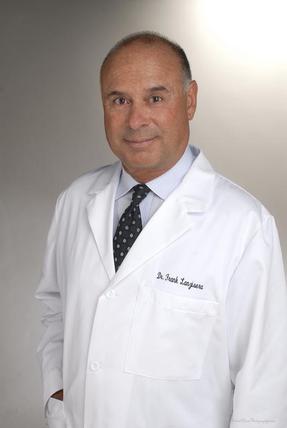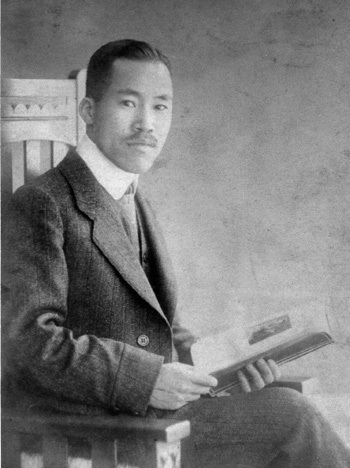Total Thyroid
17 Davis Blvd Suite 304
Tampa Florida 33606
813.253.2333
THYROID-RELATED ARTICLES
Dr. Hakaru Hashimoto, a Japanese physician, was researching goiters and iodine deficiencies. At this time, goiters and thyroid disease were strongly linked to a dietary lack of iodine. While researching, Dr Hashimoto found a type of goiter that appeared to be unrelated to an iodine deficiency. He biopsied these goiters and his histopathology findings noted lymphocyte infiltration, fibrosis, parenchymal atrophy, and eosinophilic changes of acinar cells. He called this special characteristic of a new type of lymphomatous thyroid disorder "Hashimoto's thyroiditis" or lymphocytic thyroiditis.
At the time Dr. Hashimoto reported his findings in 1912, German was considered the scientific language. In seeking the widest audience for his discovery, Dr. Hashimoto published his work in a German journal. He wanted to make his important work known around the world and felt this would be the best way to do so. It wasn't until many years later, however, that he was credited for the first recognized autoimmune condition.
Till this day, 101 years later, Hashimoto's thyroiditis is still somewhat of an enigma. The reason for this is the diversity of symptoms that patients present.
Side Note: Some papers on Hashimoto's thyroiditis state that at times patients will report no symptoms. This is inaccurate and probably due an inexperienced person taking the patient's history. Patients with Hashimoto's do have a wide range of symptoms with varying severity and a thorough history will reflect this symptomatology.
It is not unusual for a patient with Hashimoto's thyroiditis to have symptoms of both hypothyroidism and hyperthyroidism. The most common symptom is fatigue but someone with Hashimoto's can also present with a racing heart, a feeling of being "on edge" or nervousness, and brain fog or loss of mental clarity.
Hyperthyroidism symptoms are evident when the thyroid has produced too much of a thyroid hormone called thyroxine. This creates "hyper" signs and symptoms by accelerating the body's metabolism significantly. Typically these symptoms include inability to gain weight or sudden loss of weight, sweating, rapid and irregular heart rate, nervousness, diarrhea and irritability. Hashimoto's causes the release of too much thyroxine when the thyroid gland is under an active attack by the body's own immune system. During the attack the thyroid tissue is destroyed and any thyroxine within this tissue is released into the body causing a surge of this hormone into the bloodstream. This is the reason a person with Hashimoto's thyroiditis can experience temporary bouts of hyperthyroidism then a return of hypothyroidism symptoms.
After the attack has leveled off there is less functioning thyroid gland able to produce thyroid hormones and this shows itself by a slowed metabolism. Weight gain, constipation, fatigue, slowed heart rate, and depression are several symptoms that reflect this "hypo" or decreased thyroid hormone output otherwise known as hypothyroidism.
Hashimoto's is a gradual destruction of the thyroid gland by the body's own immune system. Often, a person will suffer with Hashimoto's for years before seeking help. Even then, traditional allopathic treatment is typically only directed toward achieving a TSH (thyroid stimulating hormone) blood level in the "normal" range. Although this thyroid hormone replacement (HRT) treatment is necessary at times, the underlying autoimmunity problem needs support as well or the thyroid gland will continue to be destroyed. Also, it is common for patients who are taking thyroid replacement hormones to continue to experience symptoms.
Another important point is a person with Hashimoto's has an autoimmune problem that may not stop at just attacking the thyroid gland. Other organs, including the pancreas and brain, are all at risk. It's vital to diagnose this condition as early as possible.
Do not assume that just because there is no family history of thyroid disease in your family that you are not susceptible. Also don't think that thyroid conditions are relegated to middle-age women. We are seeing more 20 and 30-year old women and men presenting with thyroid symptoms and many do have Hashimoto's thyroiditis. Often, when taking the history of this group, they report experiencing their symptoms since they were children or teenagers. This leaves us to believe that there are a number of undiagnosed children and adolescents suffering with Hashimoto's thyroiditis in the U.S.
With fluctuating hormone levels depending on what part of hyper/hypo state is present at the time, it can be difficult for an inexperienced practitioner to diagnose a patient with Hashimoto's simply through basic thyroid lab tests. If Hashimoto's thyroiditis is suspected, a practitioner can order blood tests that evaluate the body's antibody count against thyroglobulin (TG) and thyroid peroxidase (TPO). A needle biopsy may also be ordered to rule out the presence of lymphocytes and macrophages. The majority of the time a needle biopsy is not necessary to diagnose Hashimoto's.
A goiter or enlargement of the thyroid gland is sometimes associated with Hashimoto's disease. A goiter can be so large as to be disfiguring or the enlarged thyroid size can simply make it uncomfortable to wear scarves or neckties. At times, the neck or throat will be sore or tender.
Functional medicine uses a treatment approach well suited for autoimmune thyroid disease (AITD) like Hashimoto's disease. Causative factors such as food allergens with cross-reactivity are addressed with functional medicine as well as the other involved systems beyond the immune system.
Dr. Frank Lanzisera is the author, along with his wife Dr. Lisa Lanzisera, of two books "Wheat Gluten - the Secret to Losing Belly Fat & Regaining Health" and "What's Wrong With MY Thyroid? " He has practiced in the Tampa Bay area for over 32 years.
His practice focuses on functional medicine for thyroid disorders, peripheral neuropathy, fibromyalgia, and other chronic conditions. He regularly presents seminars on these topics at his office. His office incorporates telemedicine for those who would like to seek help but do not live in theTampa area.
Article Source: http://EzineArticles.com/8048593
WHY YOUR THYROID MEDS MAY NOT BE WORKING FOR YOU - INFLAMMATION
Hypothyroidism, whether it’s caused by a damaged thyroid gland or autoimmunity, decreases the amount of thyroid hormone available to the body's cells. The traditional treatment approach is to simply replace these hormones with either synthetic or bio-identical forms mostly commonly sold under the brand names Synthroid or Armour.h
Most doctors and patients feel that this approach makes sense.
Except for a limited number of thyroid cases this approach however can fall short. More often, the patient requires a different approach that is more balanced to achieve optimal health.
The conventional approach can be inadequate because it overlooks the underlying cause of the problem.
In autoimmune disease the body turns on and attacks itself. It does this the same way it attacks unwanted foreign invaders. The body's immune system mistakenly attacks the body's cells, ofter the thyroid gland's cells, with T-cells, B-cells, natural killer cells, and cytotoxic T cells just like it would a virus.
This self-attack by the immune system increases inflammation. Inflammation has a profound effect on all aspects of thyroid function.
Let's explain further exactly how inflammation can harm us. For starters, inflammation suppresses the hypothalamus-pituitary-thyroid (HPT) axis.
Cytokines are cellular substances that can be pro-inflammatory or cause inflammation. One study showed a single injection of the inflammatory cytokine ,TNF-alpha, reduced blood levels of thyroid stimulating hormone (TSH), T3, free T4, free T3 and TRH for 5 days.
This study shows that inflammation disrupts the production and regulatory mechanisms of thyroid hormones. Thyroid medication will increase the levels of thyroid hormones in the blood, but it doesn’t address the other effects of HPT axis suppression.
Inflamation also decreases both the number and sensitivity of thyroid hormone receptors. If there aren’t enough receptors, or they aren’t sensitive enough, it doesn’t matter how much thyroid medication we take. The cells won’t be able to absorb the thyroid hormone. This is an important point as normally every cell in the body has thyroid hormone receptors.
Lastly, inflammation decreases the conversion of T4 to T3. T4 is the inactive form of thyroid hormone. The body has to convert it to the active T3 form before it can be used. Most synthetic hormone medications on the market are T4. If you give a T4 medication (like Synthroid, Levoxyl, Unithroid, etc.) to someone with inflammation, it’s simply not going to be able to do its job because the body can’t convert the T4 to T3.
Inflammation disrupts thyroid metabolism in several other ways, but I think these three examples make the point.
Now let’s review.
Inflammation causes HPT axis disruption, decreased receptor function, and decreased conversion of T4 to T3. Thyroid medication only increases the levels of thyroid hormone (usually T4) in the blood. No matter how much we take, it’s not going to restore HPT axis coordination, improve receptor function, or increase conversion of T4 to T3.
The goal is is decrease inflammation in the body and address the dysfunctional endocrine glands as well as any neurological component. This can be accomplished with a doctor who takes a balanced approach and manages your case with natural treatment options.
Dr. Frank Lanzisera,D.C.
Lanzisera Center
17 Davis Blvd. #401
Tampa, Fl. USA 33606
(813) 253-2333
HASHIMOTO'S THYROIDITIS
Every cell in the body has receptors for thyroid hormone. These hormones are responsible for the most basic aspects of body function, impacting all major systems of the body.
Thyroid hormone directly acts on the brain, the gut, the cardiovascular system, liver function, adrenal function , glucose metabolism, and body temperature regulation.
This is the reason why people with hypothyroidism experience everything from weight gain and depression to infertility, loss of energy, and brain fog.
Studies show that in the U.S. 90% of people with hypothyroidism have the type that is caused by an autoimmune condition called Hashimoto's thyroiditis.
What the vast majority of hypothyroidism patients need to understand is that they don’t have a problem with their thyroid, they have a problem with their immune system attacking the thyroid. This is crucial to understand, because when the immune system is out of control, it’s not only the thyroid that will be affected.
Hashimoto’s often results in a “polyendocrine autoimmune pattern”. This means that in addition to having antibodies to thyroid tissue, it’s not uncommon for Hashimoto’s patients to have antibodies to other tissues or enzymes as well. It is not uncommon for a thyroid patient to also suffer with digestive problems, anemia, neurologic deficits, and diabetes or insulin resistance.
The good news is that there are steps that can be taken to treat thyroid conditions that are based in an autoimmune disorder. Watch our patient videos on www.thyroidtampa.com or call 813-253-2333 for more information.
Dr. Frank Lanzisera, D.C.
Lanzisera Center
17 Davis Blvd. #304
Tampa Fl. USA 33606
(813) 253-2333
TO START RECEIVING OUR HEALTH NEWSLETTER, PLEASE COMPLETE THE FORM BELOW
Dr. Frank Lanzisera is a member of the American Functional Neurology Institute
Lanzisera Center 17 Davis Blvd. Ste 401, Tampa, Fl. 33606 (813) 253-2333
The patient and any other person responsible for payment has the right to refuse to pay, cancel payment or be reimbursed for payment for any other service, examination or treatment which is performed as a result of and within 72 hours of responding to the advertisement for the free, discounted or reduced fee services, examination or treatment.
DISCLAIMER: The information on this site is for Educational Purposes Only and is not designed to diagnose, treat, mitigate, prevent or cure any health conditions. The U.S. Food and Drug Administration has not evaluated statements about these health topics or any suggested product compositions.
The patient and any other person responsible for payment has the right to refuse to pay, cancel payment or be reimbursed for payment for any other service, examination or treatment which is performed as a result of and within 72 hours of responding to the advertisement for the free, discounted or reduced fee for services, examination, or treatment.
Dr. Frank Lanzisera is state licensed by the chiropractic board to provide conventional health care services and is also licensed by the Pastoral Medical Association to provide natural health services and therapies to registered members of the Member Share Network. Conventional and pastoral services are completely separate services and each is provided in strict compliance with the rules and regulations set forth by the separate licensing agencies. Dr. Lanzisera treats thyroid-related symptoms as a doctor of pastoral medicine.





